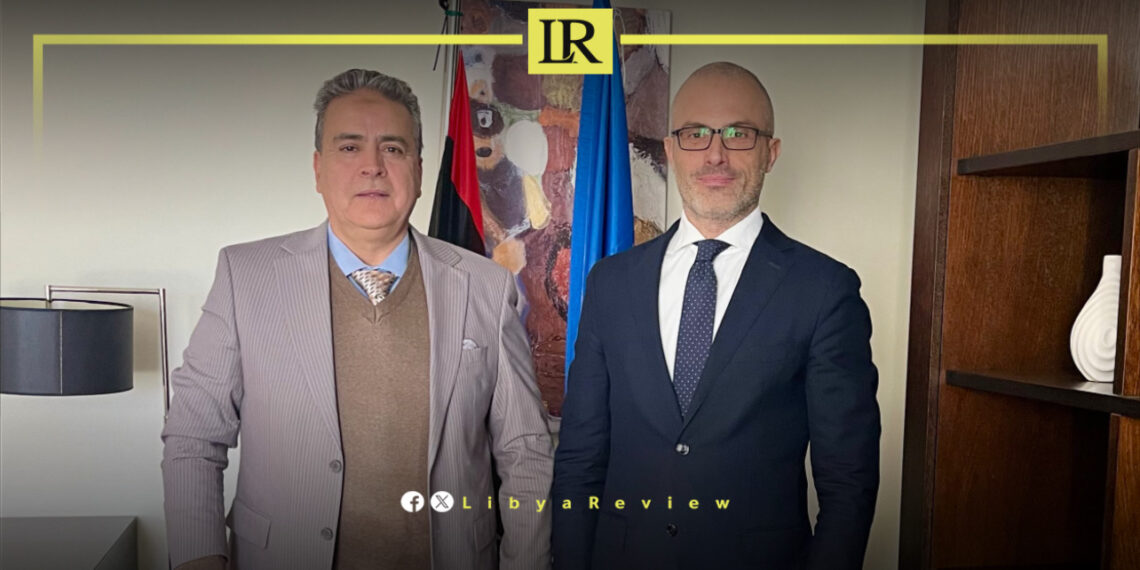The European Union has reiterated its call for Libya to adopt a unified national budget to resolve the ongoing financial divide that threatens the country’s economic stability and social cohesion. This crucial step is expected to ensure fair and transparent management of the nation’s wealth and alleviate the pressure on Libyan families.
During a meeting with Omar Tantoush, Chair of the Planning and Finance Committee of Libya’s House of Representatives, EU Ambassador Nicola Orlando expressed international concern over the prolonged financial crisis. He highlighted the risks posed by the absence of a unified budget, which exacerbates economic challenges and undermines social stability.
Orlando emphasised the EU’s role, as co-chair of the Berlin Process Economic Working Group, in driving dialogue and collaboration to achieve a unified budget. This sentiment is echoed by key stakeholders, including the Libyan Central Bank and the United Nations, who stress that financial unity is a prerequisite for Libya’s political stabilisation.
“The absence of a unified budget jeopardises Libya’s financial stability and hinders its path towards sustainable development,” Orlando stated on the platform X, reaffirming the EU’s commitment to supporting this critical issue.
Oil revenues remain the cornerstone of Libya’s economy but are also a focal point of international efforts to ensure fair distribution. The Libyan Central Bank recently called for consistent oil revenue transfers to promote transparency and accountability, warning against mismanagement that could deepen the nation’s crises.
In January, the Central Bank urged all parties to agree on a balanced budget for 2025, prioritising clear oversight of government spending and equitable resource allocation.
Stephanie Khoury, Acting Head of the UN Support Mission in Libya, stressed the urgency of adopting a unified budget, citing domestic and regional challenges as amplifying the need for decisive action. Khoury highlighted that effective public spending requires a long-term political resolution to Libya’s division, which has persisted for years.
International stakeholders, including the EU, the UN, and Libya’s Central Bank, continue to press Libyan leaders for swift action. Achieving a unified budget would not only stabilise the economy but also pave the way for long-term political and social recovery.


